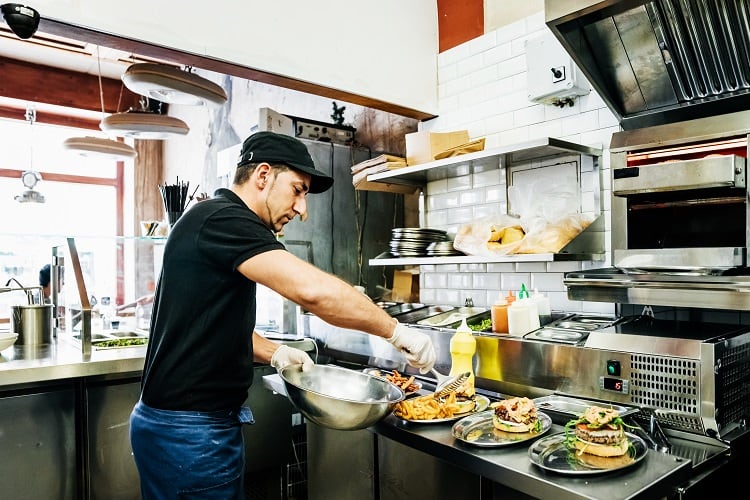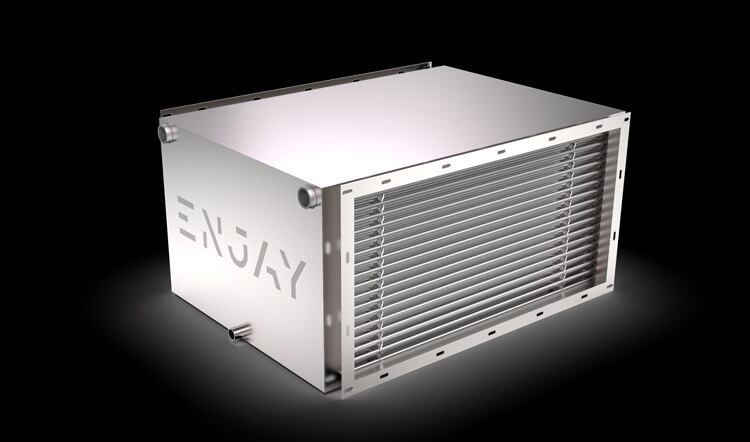With food prices rising, many food businesses, from restaurants to factories, are struggling to make ends meet.
Wasted energy costs are a key to this. Businesses are spending far more on energy than they need, with energy accounting for 15% of total expenses for the average food business. One of the reasons for this is wasted heat.
Enjay’s heat exchanger technology, called Lepido, allows businesses to cut down on the amount of wasted heat they have, thus saving them significant amounts of energy. The technology has been used in restaurants and has recently been expanded to Europe’s largest pancake factory, Lantmännen's pancake factory in Laholm in Sweden, saving the business 1.5m kWh and £112,000 per year.
Wasted heat
“75% of all the energy produced is just being sent off to the atmosphere,” Enjay’s founder and CEO Jesper Wirén told FoodNavigator, “and that is actually enough energy to heat up all of Europe.”
Enjay found that in process ventilation – essentially, the ventilation of a work process - there was no heat recovery. None of the wasted heat was being recovered and put back into the system, meaning a lot of heat was lost.
“One of the segments for process ventilation is restaurants and the food industry, and the reason why we haven't been able to recover the energy is because of all the pollutants in the air stream,” Wirén told us. These pollutants, he said, were clogging up the ventilation system.
“In restaurants it is the grease and the soot and the humidity that is clogging up traditional heat exchangers,” Wirén told us.
Lepido is “the first heat exchanger in the world that can actually co-exist with its hostile environment. So without any prefiltration and without any extra maintenance we can robustly be in this environment, recovering the energy and bringing it back into the building again, so (food businesses) don't need to buy that much energy.”

In Enjay’s technology, the space between its coils is much larger than in a traditional heat-exchanger. The coils create an aerodynamic pattern for the air to follow, meaning that the grease and soot, instead of sticking the sides, passes through the equipment, therefore ensuring that it does not clog up the heat exchanger.
“The blend of very warm air and grease and soot creates something that looks almost like tarmac,” Wirén told us, “and that comes to a traditional heat exchanger that is made up by fins with a distance of three or four millimetres.
“It clogs up: within a couple of weeks, the grease and soot just sticks to the side of the fins, and it clogs up very easily. We have developed a way to avoid this.
“What we have is actually the geometry of the coils, so we have created corridors inside where the pollutants can just go straight through.”
Wasted costs
The main aim of Enjay’s technology, according to Wirén, is to help businesses save money, especially considering the increase in food business insolvencies in recent years.
“I think that what happened during the energy crisis is the companies started to do auditing on their energy usage and so on,” Wirén told us. “They counted all the waste that they had. A couple of years ago that was just waste, it didn't hurt that much, because they didn't spend so much money on energy. Now it's started hurting them.”
The technology has the potential to save large sums of money on energy. For example, according to Wirén, using the technology in a single fast-food restaurant has the potential to save around £10,000 a year (and as seen above, for a factory the amount can be around £112,000).
“(This is) money that they used to burn. So when it's paid for, it's money in the pocket,” said Wirén.
Green tech
Enjay is, according to Wirén, at its heart a green tech company. As well as saving money for food companies on energy costs, Lepido also reduces CO2 emissions.
“On average in Europe, one restaurant (emits) between twenty and twenty-five tonnes per year in fossil CO2.” If all restaurants globally were to use Enjay’s technology, Wirén suggested, this could reduce up to 1% of global CO2 emissions, he suggested, or 0.5 gigatons.
For Wirén, the CO2-reducing element of Lepido is inexorably intertwined with the money-saving aspect. “We have created a financial incentive in order to help save the climate, and the more money the customers are saving, the bigger the climate impact we will have,” he told us.



